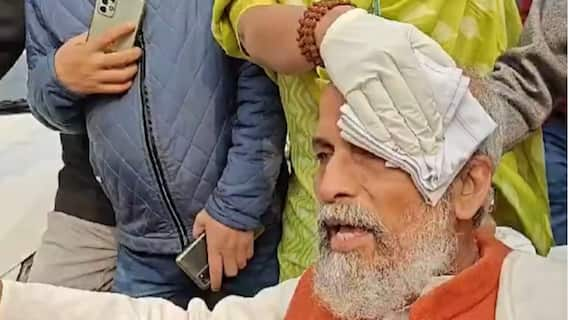RBI Board Likely To Consider Dividend Payout To Government On May 19: Report
The RBI paid Rs 30,307 crore as dividends to the government last year

The Reserve Bank of India’s (RBI's) board is expected to consider a dividend payout to the government in its meeting on Friday, May 19, reported Bloomberg. Referring to people with knowledge of the matter, the report said that the RBI Board meeting will be held in Mumbai. It also noted that the Central bank typically reviews its finances and how much it can transfer to the government during its May board meeting.
In Budget 2023-24, the government had estimated to receive Rs 48,000 crore as dividends from the RBI, nationalised banks, and financial institutions (FIs), as per the Union Budget documents. This was higher than the revised estimate of Rs 40,953 crore for Budget 2022-23.
However, the Bloomberg report said that analysts including those at Standard Chartered Plc estimate the RBI will transfer between Rs 1 lakh crores to Rs 2 lakh core to the government as a dividend for the year ended March 31.
The RBI paid Rs 30,307 crore as dividends to the government last year.
Also Read: Go First Bankruptcy: Airline Backs Emergency Arbitration In Dispute With Pratt & Whitney
The Reserve Bank of India (RBI), which serves as the government's banker, pays a dividend from its surplus profit annually to aid the government's finances. The RBI Act of 1934, Chapter 4, section 47 mandates that any profits earned by the RBI from its operations should be transferred to the government.
Section 47 of the RBI Act requires the RBI to make provisions for bad debts, depreciation in assets, staff contributions, superannuation funds, and other expenses provided by bankers. The remaining profits are then paid to the Central Government.
The RBI generates its profits primarily from interest earned through the sale and purchase of government securities, lending to banks, and interest on bond holdings through open market operations. The surplus profit is calculated by subtracting operating expenditures and other costs stipulated in Section 47 of the RBI Act. It can be understood as the residual income earned after subtracting the expenditure component from the RBI's balance sheet.
The RBI is obligated, as per Section 20 of the RBI Act 1934, to undertake receipts and payments for the Central Government and conduct exchange, remittance, and other banking operations.
Trending News
Top Headlines






































